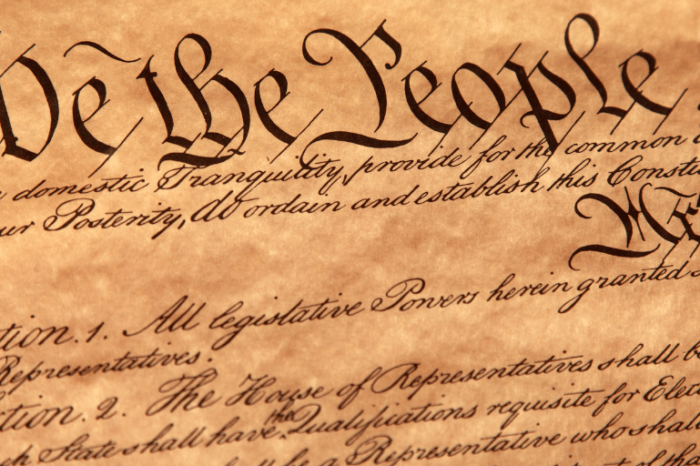Civics education is crucial to engaged citizenship
Originally appeared in CommonWealth magazine on February 8, 2023
A former president of the United States calls “for the termination of all rules, regulations, and articles, even those found in the Constitution” less than two years after a mob attacked the US Capitol seeking to prevent the certification of an election and calling for the vice president to be hanged. Perhaps the best antidote for such abhorrent behavior is a citizenry conversant in civics and US history. Sadly, that is definitively not the case.
The good news is it appears that the majority of Massachusetts residents understand the importance of history and civics. In a recent poll commissioned by Pioneer Institute and conducted by Emerson College Polling, 62 percent supported restoring passage of a U.S. History MCAS test as a public high school graduation requirement.
The Commonwealth’s bipartisan 1993 Education Reform Act explicitly required that public school students be instructed about the Declaration of Independence, the Federalist Papers, and the U.S. Constitution. It also made passage of a U.S. history test a high school graduation requirement.
The Founding Fathers believed the main role of public education was not workforce development, but to create citizens prepared for informed participation in American democracy. Without this, they feared the nation might dissolve. Never have the founders looked more prescient.
But in 2009, the state education commissioner and state Board of Elementary and Secondary Education “postponed” implementation of the graduation requirement. Since then, history and civics education have been sidelined in Massachusetts, especially in urban school districts. Entire history departments have been eliminated, and it’s common for remaining history courses to be taught by teachers whose expertise is in other subjects.
Decades of dismal national testing data show K-12 students’ dearth of civic knowledge. But there is no state breakdown of those results.
What isn’t tested isn’t taught. Unless we again make U.S. History and the documents that form the basis of our republic a priority, we risk a generation that will be unable to fully participate in America’s democracy.
Until recently, many thought ignorance of history would put the republic at risk after several generations. Recent events make it clear that we have far less time.
Absent the U.S. History graduation requirement, there will continue to be no way to measure student progress in history and civics, or to ensure that local school districts affirmatively support history departments.
Children model the behavior of the adults around them. Thirty years after the passage of education reform, it’s time for adults in Massachusetts to obey the law.
Yet rather than heeding the will of the governed and seeking to restore passage of a U.S. History test as a high school graduation requirement, momentum appears to be growing among state leaders to eliminate MCAS entirely.
Einstein famously defined insanity as doing the same things over and over and expecting different results. Understanding past challenges, how they relate to those we face today, and learning what responses were and weren’t successful in addressing the challenges is an indispensable tool. That, Massachusetts residents understand, is why it’s so important to restore passage of an MCAS U.S. History test as a high school graduation requirement.
Jamie Gass directs the Center for School Reform at Pioneer Institute, a Boston-based think tank.



